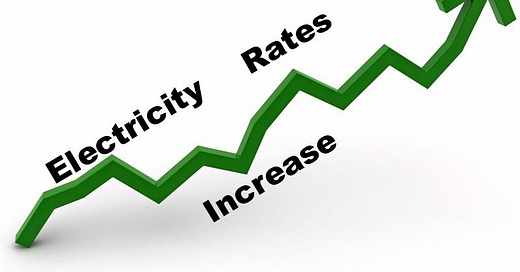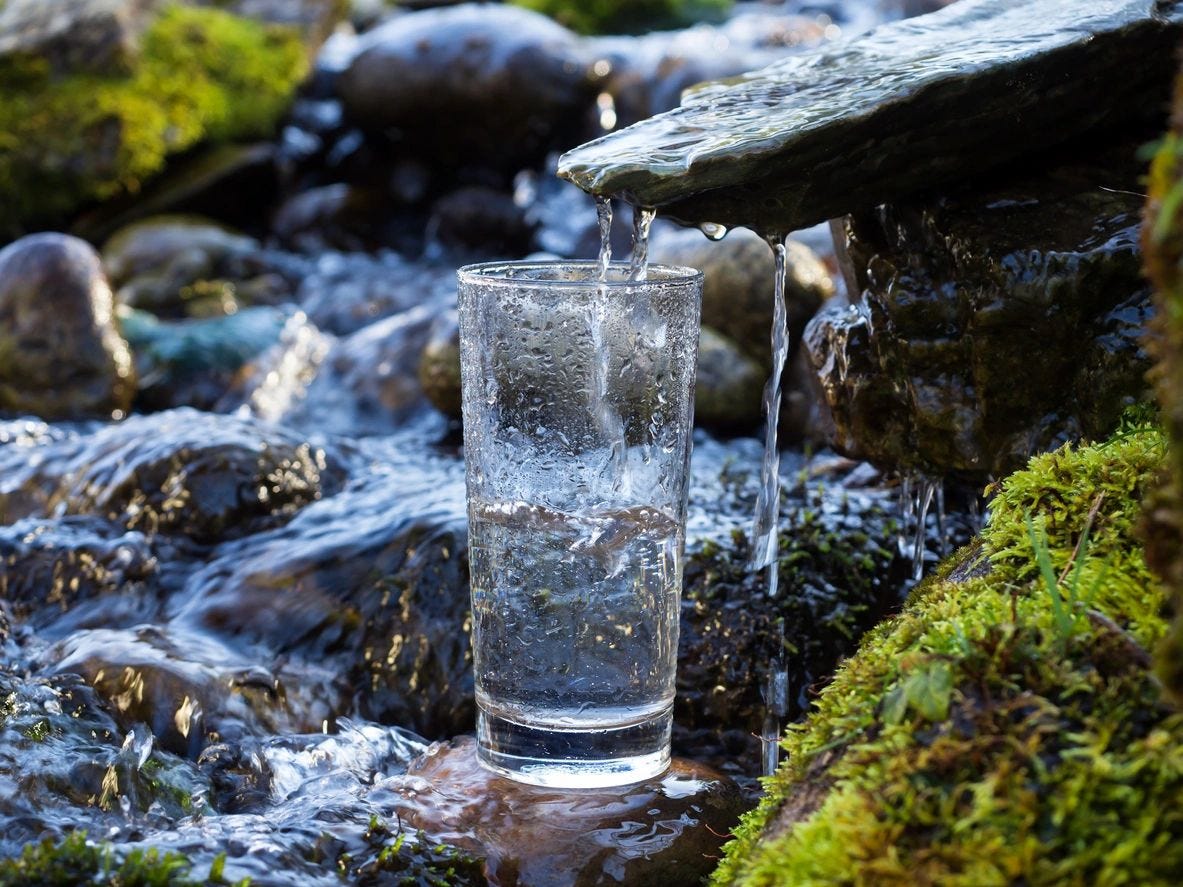Public meetings on Alliant electric rate increase and clean water in the Driftless
STATEHOUSE NEWS - December 2023
An information session with Alliant Energy on the company’s proposed rate increases is set for Tuesday, December 19, 6:00 to 7:30 p.m. at the Peosta Community Centre.
The meeting is hosted by State Rep. Shannon Lundgren and me. We requested the meeting, and Alliant agreed to participate, after the Dubuque area was not included on the list of “customer comment meetings” held by the Iowa Utilities Board (IUB) as part of Alliant’s pending rate case.
Dubuque County is Wisconsin-based Alliant’s second largest service area and the former headquarters of its Iowa subsidiary, Interstate Power and Light.
Alliant representatives will provide an overview of their recently-proposed rate adjustments and discuss the company’s current work and future plans related to the energy grid, upgraded infrastructure and energy generation. Following the presentation, audience members will have up to three minutes each to make comments and ask questions.
Since the meeting is not part of the Iowa Utilities Board process, public comments at the meeting will not become part of the official record. Lundgren and Isenhart will share information on how Alliant customers, members of the public and other stakeholders can submit their input directly to the Iowa Utilities Board.
Rep. Lundgren is chair of the House Commerce Committee. I am a member of the House Economic Growth Committee. Further info on the meeting can be found here: Public meeting.
Concerns have been raised that high electric rates could price Iowa out of the competition for new and even existing jobs, as employers may look elsewhere to do business or expand.
Personally, I am just as concerned about the affordability of electric rates for low and moderate-income households and seniors with fixed incomes, especially renters. Recently, Linn County applied for and received $1 million from the Biden Administration to help with energy efficiency upgrades on rental properties. According to the Cedar Rapids Gazette, under the "Rental Energy Improvement Program," landlords will be able to invest in improvements such as energy-efficient furnaces or windows, or added insulation in their rental properties. Those upgrades will ultimately make energy costs cheaper for the tenants.
This is something I have advocated for some time in Dubuque. Perhaps the City Council can develop a similar program. A few years ago, University-of-Wisconsin Platteville students documented heat loss from Dubuque buildings in the downtown area and provided the data to Black Hills Energy. No response was received.
Utilities do little to help customers deal with wasted energy. In fact, in 2018, the Legislature -- in a bill I voted against -- gave utilities permission to drastically cut how much they spent on energy efficiency. In the wake of that legislation, evidence shows that energy efficiency results drastically decreased in Iowa.
The bottom line is: Utilities do not make money unless they sell electrons. They do not make a profit from energy efficiency. They only make a profit (more than 10 percent in some cases) when they build more assets, like power plants, distribution lines, substations and the like, the costs of which they recover with a guaranteed profit through their electric rates.
The official public hearing on Alliant's rate increase will take place in the spring. At that hearing, Alliant will attempt to show that their proposal is "prudent" and that their numbers are accurate. In the meantime, anyone can submit their input to the Iowa Utilities Board here: https://iub.iowa.gov/alliant-ipl-rate-case.
Clean drinking water in The Driftless: Can we have nice things?
A learning and listening session on threats to drinking water quality in northeast Iowa has been scheduled in Marquette on Wednesday, December 20.
Two speakers will discuss the status of the multi-state problem beginning at 6:30 p.m. at the Driftless Area Wetland Centre, 509 U.S. Highway 18.
David Cwiertny of the University of Iowa Center on the Health Effects of Environmental Contamination will present data on water quality in the Driftless, the three-state area including southeast Minnesota and southwest Wisconsin known for its “karst” terrain.
Dissolving bedrock in karst areas creates sinkholes, underground streams, caves, springs and aquifers tapped with wells for drinking water. Surface contaminants such as fertilizer from farms, human waste from septic systems and animal waste from livestock operations can get into and pollute such waters.
Cwiertny is a professor of chemistry in the Department of Civil and Environmental Engineering at the University of Iowa.
The second speaker is Jeff Broberg of Minnesota, a professional geologist and private industry consultant focused on natural resource, energy, water and land-use issues in the Upper Mississippi Valley. He is director of the Minnesota Well Owners Organization, a non-profit organization “dedicated to ensuring safe water at the kitchen tap of all private well owners.”
Along with other organizations, the well owners association petitioned the federal Environmental Protection Agency (EPA), which recently directed the State of Minnesota to take more action to protect public health by developing a plan to provide education, outreach and alternative drinking water to residents in the karst region affected by drinking water polluted with nitrate.
Nitrate contamination often occurs in areas where farm fertilizers and animal/human waste get into surface water and groundwater, which then flows to private drinking water wells and the source waters of public water utilities.
Broberg received his degree in geology from the University of Minnesota in 1977 and is serving his third term on the Legislative-Citizens Commission on Minnesota Resources. That group oversees the state’s Environmental Trust Fund.
I have organized the meeting as a member of Iowa House of Representatives appropriations committee for health and human services. I am also a member of the Natural Resources and Infrastructure Committee with the National Conference of State Legislatures.
Other state legislators and local officials from Winneshiek, Allamakee, Clayton, Fayette, Delaware, Dubuque and Jackson counties have been invited to “listen and learn” at the event.
The meeting is free for the general public to attend. Residents facing water quality issues, as well as municipal and rural water providers, are invited to speak about their experiences in producing and obtaining clean drinking water.
A Facebook page to promote the event and provide further information has been set up at https://www.facebook.com/events/1042362963739191. The names of other officials joining the listening panel will be added to that page when they indicate their ability to attend.






